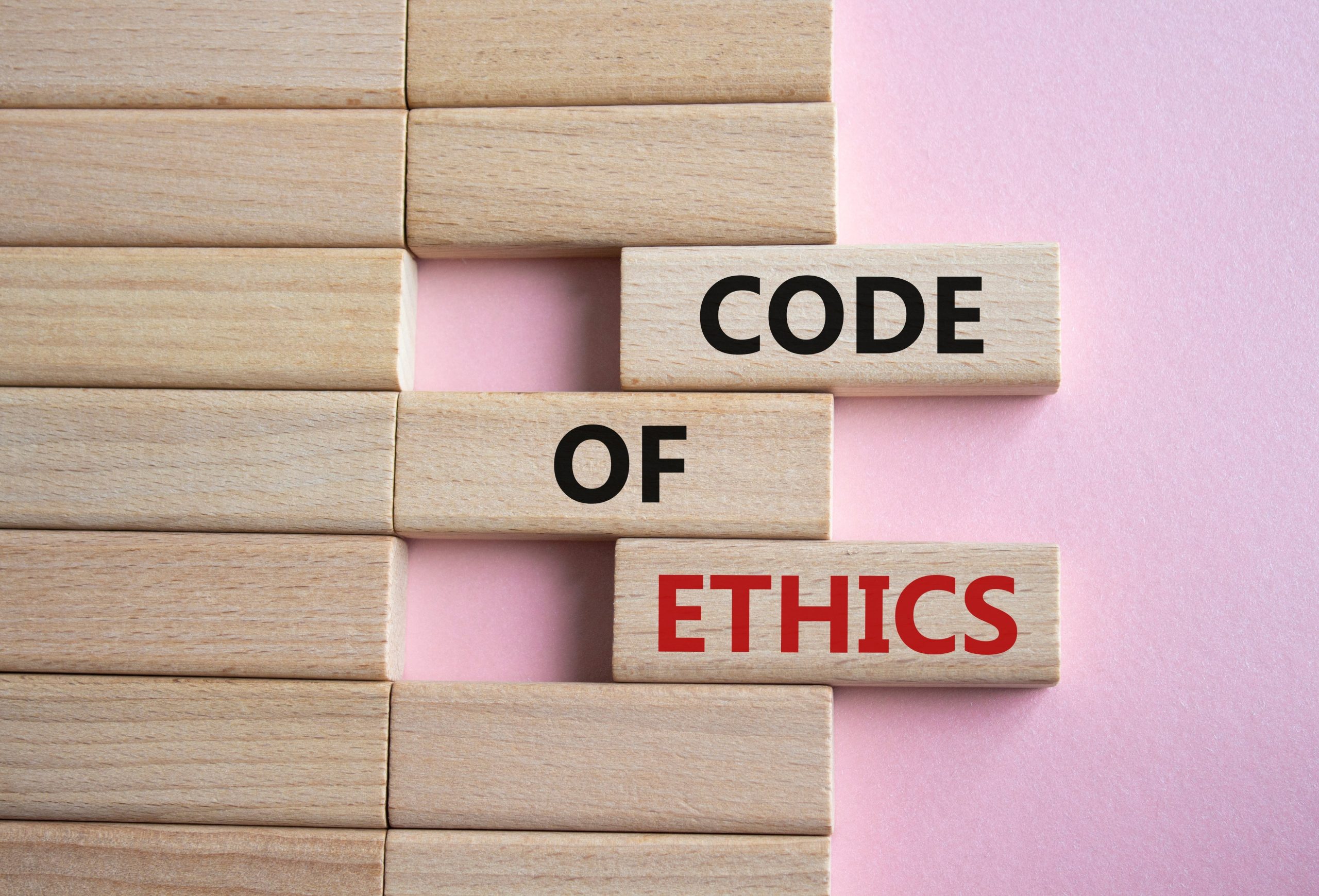| Getting your Trinity Audio player ready... |
The evil inclination doesn’t object to one’s immersing himself in Torah, as long as he does nothing to improve in the area of personal holiness. A person could learn Torah all day long, but if he continues to look at women and think about them, he transgresses the Ten Commandments and is guilty of coveting that which is not his. So despite the Torah, he remains a sinner. He may hear wonderful lectures about loving Hashem, but as long as he harbors a lust for debauchery, he can never love Hashem! Without correcting the core problem of sexual lust, he will remain completely severed from holiness. Therefore, fighting sexual lust is the front line of the battle for holiness and overall success and gratification in life.
The true tzaddikim of this generation have warned that many of our contemporary difficulties and harsh decrees from Above are the result of blatant informality between married people of the opposite sex. when men and women call each other by their first names and freely converse in the bank, supermarket or in the workplace. We have all heard horror stories about the tragic outcome of married women speaking in a more-than-open manner to cab drivers or store owners or male salesmen. No G-d fearing or self-respecting woman should allow a male shoe-salesman to put shoes on her feet. Every man must pray that he shouldn’t become an obstacle to holiness in any way.
One who never covets is the person who can be satisfied with his or her lot in life. Such people are far from theft, murder or adultery. Theft, murder and adultery are the outcome of people’s coveting of what is not there’s. We can now understand why the Torah is so much more elaborate in the commandment of “Thou shall not covet”, because it leads to many more severe transgressions. The prisons are full of people who committed terrible crimes, all of which can be traced to coveting that which was not theirs.
I often hear parents complaining to me that their teenage son has no desire to pray or to open a Gemara. This is no mystery; the boy has certainly been looking at things that he shouldn’t be looking at – this has destroyed his desire for holiness. Since one’s desire for holiness is his most valuable asset, it should be closely protected.
Sadness and blemished personal holiness fuel one another to create a perilous downward spiral that is liable to lead to the deepest depression. The more a person is depressed, the more he blemishes his personal holiness; and, the more he blemishes personal holiness, the more he gets depressed, Heaven forbid. Both depression and blemished personal holiness corrode a person’s connection to Hashem. Therefore, a person must do his utmost to find ways of maintaining his optimism and happiness all the time.
There are many instances where a man doesn’t properly respect his wife at home, yet acts completely different toward the secretary or receptionist at the office, treating her with deference. At work, all of a sudden, words of politeness, consideration and kindness find their way into his lexicon. Where are they when he goes home? The truth is that the nice words at work are the slick tongue of the evil inclination. The proof of this blatant double standard is that so many man are gentlemen at work but savages at home. They give a female colleague the attention, kindness and respect that they should be giving at home (may Heaven forbid the way so many men trample and neglect their wives). But again, this [is] not true respect but a mere fabrication of the evil inclination.
Note to Readers: The insights and wisdom in these books are too valuable not to be shared widely. There’s an urgent need for them to be made into audiobooks, expanding their reach and accessibility. If you have the influence or means to make this happen, I encourage you to lend your support. Let’s work together to bring these important words to a broader audience.
Related Study:
Please note that the studies shared on this website are for informational purposes only. Readers are encouraged to critically evaluate the content and not to accept it as absolute or complete without further verification. The views expressed in the studies do not necessarily reflect the opinions of this website.
“Not as the Gentiles”: Sexual Issues at the Interface between Judaism and Its Greco-Roman World by William Loader
Abstract
1. Introduction
2. Encounters in the Jewish Homeland
2.1. The Book of the Watchers
2.2. The Hellenistic Crisis, the Maccabean Revolt, and the Hasmoneans
Similarly, the story of Ham’s son seeing the genitals of his father (Jub. 7:6–12; cf. Gen 9:20–27) belongs in the realm of such concerns (Loader 2007, pp. 146–49). Jubilees also alluded to the neglect of circumcision or the attempt to do it only partially (Jub. 15:33–34). The concern with nakedness was reflected also in the Testament of Moses, written around the turn of the millennia, according to which Moses predicted that “their young sons will be cut by physicians to bring forward their foreskins” (8:3).Of all the animals and cattle he permitted Adam alone to cover his shame. For this reason it has been commanded in the tablets regarding all those who know the judgment of the law that they cover their shame and not uncover themselves as the nations uncover themselves.(3:30–31)
While the allusion could be to Gentile cultic meals generally, it was more likely targeting symposia. Shimoff notes the influence of the Hellenistic banquet among Jews, pointing to Aristeas and Ben Sira 31:12–19; 32:1–13 (p. 445). The focus was not only on eating forbidden food, such as food containing blood, but doubtless also included the sexual profligacy frequently associated with symposia. Forbidden mixing also included forbidden intermarriage. Jubilees made the dangers explicit. Thus, it depicted Rebecca warning Jacob that “Canaanite women are evil” (27:8) and that “[e]verything that they do (consists of) sexual impurity and lewdness” (25:1)—statements which the author’s hearers would know applied just as much to foreign nations in their Hellenistic context. The failure to heed such warnings, it claimed, led to disaster, citing Judah’s marriage to the Canaanite Bedsuel, which eventually trapped him into engaging unwittingly in incest (41:1–21). While the author employed such warnings within the narrative world of the text, which the author extrapolated, occasionally the author referred to his own, as in the mention of the Kittim, probably referring to the coastal cities of Phoenicia and Philistia, which were significant channels of Hellenistic influence (24:24–30) (Anderson 2005, p. 66).Separate from the nations, and do not eat with them. Do not act as they do, and do not become their companion, for their actions are something that is impure, and all their ways are defiled and something abominable and detestable.(22:16)
3. Encounters in the Jewish Diaspora
3.1. Pseudonymous Works Attributed to Significant Jewish Figures
3.1.1. The Wisdom of Solomon
3.1.2. 2 Enoch
3.1.3. The Testaments of the Twelve Patriarchs
3.2. Works Attributed to Significant Figures of the Greco-Roman Tradition
3.2.1. The Sentences of Phocylides
3.2.2. The Sibylline Oracles
While alluding to the prohibitions of Leviticus, the Sibyl portrayed God’s law as applicable to all humankind: “common to all” (3:248). The Sibyl warned of impending judgment: “Avoid adultery and indiscriminate intercourse with males” (3:764). That exhortation continued: “rear your own offspring and do not kill it, for the Immortal is angry at whoever commits these sins (3:765–66). A later section of Book 3, probably dated to the late first century BCE or early first century CE, attacked Romans as “a crafty and evil race of impious and false double-tongued men and immoral adulterous idol worshippers” (3:36–38). It went on to state that “[t]hey will have no fidelity at all. Many widowed women will love other men secretly for gain; and those who have husbands will not keep hold of the rope of life” (3:43–45).Greatly, surpassing all men, 595 they are mindful of holy wedlock, 596 and they do not engage in impious (or: impure, immoral) intercourse with male children, 597 as do Phoenicians, Egyptians, and Romans, 598, spacious Greece and many nations of others, 599 Persians and Galatians and all Asia, transgressing, 599 the holy law of immortal God, which they transgressed.(3:594–600)
This catalogue of sexual wrongdoing, as seen by the Jewish author of this book, thus included pederasty, prostitution, incest with mother and daughter (similarly Pss. Sol. 8:9), fellatio, bestiality, and possibly the violation of vestal virgins.Matricides, desist from boldness and evil daring, 387 you who formerly impiously catered for pederasty 388 and set up in houses prostitutes who were pure before, 389 with insults and punishment and toilsome disgrace. 390 For in you mother had intercourse with child unlawfully, 391 and daughter was joined to her begetter as bride. 392 In you also kings defiled their ill-fated mouths. 393 In you also evil men practiced bestiality. 394 Be silent, most lamentable evil city, which indulges in revelry. 395 For no longer in you will virgin maidens tend the divine fire of sacred nourishing wood.(5:386–96)
3.2.3. Aristeas
The majority of other men defile themselves in their relationships, thereby committing a serious offense, and lands and whole cities take pride in it: they not only procure the males, they also defile mothers and daughters. We are quite separated from these practices.(152)
3.3. Philo of Alexandria
He went on to note how the adulterer led another into the act and also had major family and social consequences. In addition, such excess was out of place in marriage:For in the first place it has its source in the love of pleasure which enervates the bodies of those who entertain it, relaxes the sinews of the soul and wastes away the means of subsistence, consuming like an unquenchable fire all that it touches and leaving nothing wholesome in human life.(Decal. 122)
Similarly, Philo stood on common ground in condemning incest, which he cited as a Persian custom (Spec. 3.13), though Jewish restrictions were tighter than those of his non-Jewish world, and he was critical of Solon’s law permitting marriage to half-sisters, the Spartans for allowing it with sisters but not half-sisters, and the Egyptian lawgiver who allowed both (Spec. 3.22–25). Of Solon, he wrote the following: “With a lavish hand he bestowed on bodies and souls the poisonous bane of incontinence and gave full liberty to marry sisters of every degree whether they belonged to one of their brother’s parents or to both” (Spec. 3.23).Now even natural pleasure is often greatly to blame when the craving for it is immoderate and insatiable, as for instance when it takes the form of voracious gluttony, even though none of the food taken is of the forbidden kind, or again the passionate desire for women shewn by those who in their craze for sexual intercourse behave unchastely, not with the wives of others, but with their own.(Spec. 3.9)
Like the author of Pseudo-Phocylides, he cited the dangers of hairstyles that seduce: “Mark how conspicuously they braid and adorn the hair of their heads, and how they scrub and paint their faces with cosmetics and pigments and the like, and smother themselves with fragrant unguents” (Spec. 3.37). Like Plato, he depicted such behavior as contrary to nature.Those of them who by way of heightening still further their youthful beauty have desired to be completely changed into women and gone on to mutilate their genital organs, are clad in purple like signal benefactors of their native lands, and march in front escorted by a bodyguard, attracting the attention of those who meet them.(Spec. 3.41)
But beyond that, Philo appealed to his tradition, citing the death penalty in Lev 20:13 but urging that it be immediate (Spec. 3.38). Philo also addressed what he saw as the causes of such depravity:And the lover of such may be assured that he is the subject of the same penalty. He pursues an unnatural pleasure and does his best to render cities desolate and uninhabited by destroying the means of procreation … like a bad husbandman he lets the deep-soiled and fruitful fields lie sterile, by taking steps to keep them from bearing, while he spends his labour night and day on soil from which no growth at all can be expected.(Spec. 3.39)
Philo’s grounds for objection were also reflected in his depiction of the men of Sodom: “The land of the Sodomites … was brimful of innumerable iniquities, particularly such as arise from gluttony and lewdness, and multiplied and enlarged every other possible pleasure with so formidable a menace that it had at last been consumed by the Judge of All” (Abr. 133). Philo cited Menander with approval: “the chief beginning of evils, as one has aptly said, is goods in excess” (Abr. 134). Excess included excessive drinking:The reason is, I think, to be found in the prizes awarded in many nations to licentiousness and effeminacy. Certainly, you may see these hybrids of man and woman continually strutting about through the thick of the market, heading the processions at the feasts, appointed to serve as unholy ministers of holy things, leading the mysteries and initiations and celebrating the rites of Demeter.(Spec. 3.40)
In Contempl. Philo contrasted the holy meals of the Therapeutae with the drunken banquets in his world:[I]ncapable of bearing such satiety, plunging like cattle, they threw off from their necks the law of nature and applied themselves to deep drinking of strong liquor and dainty feeding and forbidden forms of intercourse … Not only in their mad lust for women did they violate the marriages of their neighbours, but also men mounted males without respect for the sex nature which the active partner shares with the passive (Abr. 135) … Then, as little by little they accustomed those who were by nature men to submit to play the part of women, they saddled them with the formidable curse of a female disease. For not only did they emasculate their bodies by luxury and voluptuousness, but they worked a further degeneration in their souls and, as far as in them lay, were corrupting the whole of mankind.(Abr. 136)
He continued as follows: “In the background are others, grown lads newly bearded with the down just blooming on their cheeks, recently pets of the pederasts, elaborately dressed up for the heavier services, a proof of the opulence of the hosts as those who employ them know, but in reality of their bad taste” (Contempl. 52). He then turned his attention to the two accounts of banquets in which Socrates participated, as depicted in Xenophon and Plato (Contempl. 57). On Plato’s Symposium, he observed the following: “the talk is almost entirely concerned with love, not merely with love-sickness of men for women, or women for men, passions recognized by the laws of nature, but of men for other males differing from them only in age” (Contempl. 59). In this context he cited Aristophanes’ etiological myth, explaining the origins of homosexual and heterosexual attraction on the basis of bodies male, female, and androgynous beings sliced in half by Zeus for their arrogance and, so, ever since seeking their other half: “double-bodied men who were originally brought by unifying forces into cohesion with each other and afterwards came asunder, as an assemblage of separate parts might do when the bond of union which brought them together was loosened”, which he declared as “seductive enough, calculated by the novelty of the notion to beguile the ear” but to be treated by “the disciples of Moses trained from their earliest years to love the truth … with supreme contempt” (Contempl. 63).For waiting there are slaves of the utmost comeliness and beauty, giving the idea that they have come not so much to render service as to give pleasure to the eyes of the beholders by appearing on the scene … [some] who are still boys” … [and others] full-grown lads fresh from the bath and smooth shaven, with their faces smeared with cosmetics and paint under the eyelids and the hair of the head prettily plaited and tightly bound.(Contempl. 50)
He pointed to the cultural tradition of his world by citing the myth of Pasiphaë, the wife of King Minos of Crete, who mated with a bull, as a result of which the half-beast Minotaur was born (Spec. 3.44) and commented as follows: “Probably, if passions are suffered to go unbridled, there will be other Pasiphaës, and not only women but also men will be frantically in love with wild beasts, which will produce unnatural monsters to serve as monuments of the disgusting excesses of mankind” (Spec. 3.45). The Testament of Solomon similarly alluded to the legend of Onoskelis, the half-human half-donkey offspring of the sodomizing of a donkey by Aristonymos of Ephesus (4:1–5) (Busch 2006, p. 111). It made, however, no references to bestiality in the contemporary society.Even worse than this is the conduct of some who have emulated the lusts of the Sybarites and those of others even more lascivious than they … These persons begin with making themselves experts in dainty feeding, wine-bibbing and the other pleasures of the belly and the parts below it … Sated with these they reach such a pitch of wantonness, the natural offspring of satiety, that losing their senses they conceive a frantic passion, no longer for human beings male or female, but even for brute beasts.(Spec. 3.43)
Other nations are permitted after the fourteenth year to deal without interference with harlots and strumpets and all those who make a traffic of their bodies, but with us a courtesan is not even permitted to live, and death is the penalty appointed for women who ply this trade.(Ios. 43)
3.4. Josephus
3.5. Paul and the Early Christians
Like other Jews using such arguments, such as Philo, Paul did not go so far as to condemn passions absolutely, a difficult step for those who saw them as nevertheless part of how God made human beings; but, we find, under the influence of the popular philosophy, a much greater emphasis on moderation and temperance, especially from the first century CE onwards, in both Jewish and emerging Christian literature. A dualism, such as we find in second century gnostic literature, which deemed passions and the body as something evil in itself or as material entrapment, the work of an errant heavenly being or a dirty aspect of creation to be discarded in the future if not de facto in the present, does not clearly arise in the first century CE. That would later lead some to practice celibacy.For this is the will of God, your sanctification: that you abstain from sexual immorality; 4that each one of you knows how to control your own body (τὸ ἑαυτοῦ σκεῦος κτᾶσθαι or “manage your own wife”) in holiness and honour, 5not with lustful passion, like the Gentiles who do not know God.(1 Thess 4: 3–5)
4. The Impacts of Engagement
5. Conclusions
Loader, W. “Not as the Gentiles”: Sexual Issues at the Interface between Judaism and Its Greco-Roman World. Religions 2018, 9, 258. https://doi.org/10.3390/rel9090258













